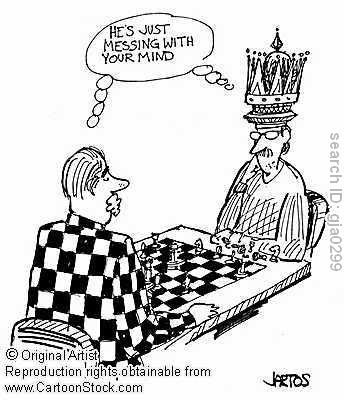In an article entitled
"Some Hard Truths about Prayer and Crime a blog called Ploiticus USA asserts that a Pew Study finds that Christians are more likely to go to Prison.This artilce contians some of the most haius lies I've ever seen. The author, Hrafnkell Haraldsson, self described: "social liberal with leanings toward centrist politics has degrees in history and philosophy."
I recently wrote about the Republican school prayer myth. I thought we’d revisit the question of prayer and violence given the Republican mania over the question. They’re pushing a narrative of prayer = nonviolence. They want us to believe that the absence of prayer in our public schools is breeding criminals. They want us to believe barring religion from politics at the government level is corrupting America. Religion, they say (as do many Muslims) is the maker and enforcer of morality. Without God, morality, so the narrative goes, is impossible.
If the morality police are right, most of our criminals are nasty old atheists and secularists and Pagans.
But they’re not! Atheists and agnostics commit fewer crimes than Christians. A Pew Research Values Study shows that “crime correlates inversely with levels of religious conviction.”
The problem is he never sites the source and the Pew Research Center has never heard of it. They could not find me a researcher who could point me to the study. Pew is an Evangelical organization funded by private money from a family. It's not very likely they would produce such a study.
He doesn't stop there he has a whole article of lies:
We already noted that secularism is on the rise, from 8% of Americans in 1990 to 15% in 2008. If this is the case, and if the morality police are right, then crime should be on the increase as well, because these are the immoral slobs committing all the crimes.
He doesn't say 8% of what. He doesn't define what he means by "secular" there are secular priests, I'm a secular person. Does he think he means atheists? There sure are not 8% atheists in Ameica. Maybe he means 8% who don't like organized religion, does that make them "secular?" maybe, maybe not. what's he talking about? We know can't trust atheists to honestly represent their figures
because they love to inflate them. There are not more than
6% atheists nd probalby 3%, and no more than 9% who overall dislike organized religion but do believe in some sort of God or higher power.
Instead, violent crime remained at a steady level from 1990 to 1993 and since 1993 it has declined. As America has become more secular, it has become less violent.
He doesn't give us any idea as to what he means by "become more secular." America has not become more atheist. If anything it's less atheists. Some have shifted from Christian belief to Neo-pagn or general sort of theist/deist kind of haze. No laws of have peen passed making the country more secular he doesn't really give us an idea of what he means. As for less violent a variety of measures were enacted under Clinton such as putting a hundred thousand more cops on the street and having more lights are locks. These measures known to reduce crime.
The core argument he's working against in the first place is kind of lunck headed to begin with. Anyone who makes an uncritical association between religious belief and lower crime rates is sociologically naive. Haraldsson moves to the opposite extreme that is not helping either. Now he demonstrates his true sociological ignorance by drawing upon well worn and disproved atheist mistakes in bogus social analysis:
Who fills up our prisons? Why, secularists of course! Atheists! Pagans!
Wrong again. The Federal Bureau of Prisons says that nonbelievers are only two-tenths of 1% of inmates. Since Christians are approximately 80% of the population and 75% of it’s prisoners, we should be drawing some vastly different conclusions, shouldn’t we?
While I’m sure the apologists will explain the 91% of executed murderers on persecution of the faithful, the numbers suggest that Christians are simply more likely to murder somebody. How many atheists were executed for murder in the same ten-year period? Less than a third of 1%.
I have already discussed other atheist claims and alled "studies" where I cught atheists open fabricating statistics.
I reproduce that article below
One attempt at this bogus atheist social sciences is a site by
Boyd Swift. Swift, thought he would be a wrote the bureaus of prisons for stats, but unfortunately he doesn't know how to read a table.
I can't reproduce the table here without screwing up the side bar, but I will link to the tables, please read them. I will reproduce some of the stats.
One attempt at this bogus atheist social sciences is a site by Boyd Swift. Swift, thought he would be a wrote the bureaus of prisons for stats, but unfortunately he doesn't know how to read a table.
| Response | Number | % |
| Catholic | 29267 | 39.164% |
| Protestant | 26162 | 35.008% |
| Muslim | 5435 | 7.273% |
| American Indian | 2408 | 3.222% |
| Nation | 1734 | 2.320% |
| Rasta | 1485 | 1.987% |
| Jewish | 1325 | 1.773% |
| Church of Christ | 1303 | 1.744% |
| Pentecostal | 1093 | 1.463% |
| Moorish | 1066 | 1.426% |
| Buddhist | 882 | 1.180% |
| Jehovah Witness | 665 | 0.890% |
| Adventist | 621 | 0.831% |
| Orthodox | 375 | 0.502% |
| Mormon | 298 | 0.399% |
| Scientology | 190 | 0.254% |
| Atheist | 156 | 0.209% |
| Hindu | 119 | 0.159% |
| Santeria | 117 | 0.157% |
| Sikh | 14 | 0.019% |
| Bahai | 9 | 0.012% |
| Krishna | 7 | 0.009% |
---------------------------- -------- Total Known Responses 74731 100.001% (rounding to 3 digits does this) Unknown/No Answer 18381 What's really intereting is what Adherents.com has to say about these stats and Swifts website. Here is a letter by researcher on Adherents.com who checked out Swift's data: Adherents.com
David Rice has written to us (23 October 2002) concerning the origin of the data in the table below: The data came from Denise Golumbaski, who was a Research Analyst for the Federal Bureau of Prisons. The data was compiled from up-to-the-day figures on March 5th, 1997. (Note that as of the year 1999, Analyst Golumbaski is no longer working for the Federal Bureau of Prisons; I had telephoned Analyst Golumbaski to request the latest figures, and was told by another analyst that Golumbaski was no longer employed there.) The data was requested by Mr. Rod Swift, who passed it on to me for my web site. I later called the Federal Bureau of Prisons and confirmed that the data did in fact come from their database.
This is the actual data Swift had to work wtih and Rice documents that fact, here it is:
19.908%
| Response | Number | % |
| Catholic | 29267 | 39.164% |
| Protestant | 26162 | 35.008% |
| None/Atheist/Unknown | 18,537 |
| Muslim | 5435 | 7.273% |
| American Indian | 2408 | 3.222% |
| Nation | 1734 | 2.320% |
| Rasta | 1485 | 1.987% |
| Jewish | 1325 | 1.773% |
| Church of Christ | 1303 | 1.744% |
| Pentecostal | 1093 | 1.463% |
| Moorish | 1066 | 1.426% |
| Buddhist | 882 | 1.180% |
| Jehovah Witness | 665 | 0.890% |
| Adventist | 621 | 0.831% |
| Orthodox | 375 | 0.502% |
| Mormon | 298 | 0.399% |
| Scientology | 190 | 0.254% |
| Atheist | 156 | 0.209% |
| Hindu | 119 | 0.159% |
| Santeria | 117 | 0.157% |
| Sikh | 14 | 0.019% |
| Bahai | 9 | 0.012% |
| Krishna | 7 | 0.009% |
I have represented both talbes exactly as they appear on the adherents.com website.
Several interesting points. The original says "National of Islam," Swift's Version says "Nation" only. The Original puts Muslims at 5.837% While Swift's version puts them at 7.273%. Swift's has Mormons as seventh from bottom. The original doesn't have Mormons on it.
What's really interesting is what Adherents.com has to say about these stats and Swifts website. Here is a letter by researcher on Adherents.com who checked out Swift's data:
Adherents.com
David Rice has written to us (23 October 2002) concerning the origin of the data in the table below: The data came from Denise Golumbaski, who was a Research Analyst for the Federal Bureau of Prisons. The data was compiled from up-to-the-day figures on March 5th, 1997. (Note that as of the year 1999, Analyst Golumbaski is no longer working for the Federal Bureau of Prisons; I had telephoned Analyst Golumbaski to request the latest figures, and was told by another analyst that Golumbaski was no longer employed there.) The data was requested by Mr. Rod Swift, who passed it on to me for my web site. I later called the Federal Bureau of Prisons and confirmed that the data did in fact come from their database.
I have represented both talbes exactly as they appear on the adherents.com website.
Several interesting points. The original says "National of Islam," Swift's Version says "Nation" only. The Original puts Muslims at 5.837% While Swift's version puts them at 7.273%. Swift's has Mormons as seventh from bottom. The original doesn't have Mormons on it.
What's really interesting is the major difference for our purposes, the original includes "none/atheist/unknown as third from the top. Swift puts them much further down. The Originals give the atheist category almost 20% while Swift gives it 0.2% or less.
Examine this table with the one above.
Swift's Table
On Swift's table there is no mention of atheist in the first five and atheist is listed fifth from the bottom. In that table atheist is 0.209%. Now here is the table sent by the Bureau of prisons to Rice, first five:,br>
In this table Atheist/unknown/none is third form top and has 19%! Fifth from the bottom on this version is not atheist but "Hindu." So the version sent by the Bureau of Prisons is significantly different than the version put up by Swift.
It seems Swift misrepresented the data.
So in other words, the actual number of atheists is about a quarter as high as the Christians. It's not this tiny 0.something percent, it's actually pretty high.
It's pretty clear he fabricated the data. These mistakes are too far off to be merely mistakes in recording.
Swift goes on to explain how the disproportionate number of atheists in prison from the general population means they are so far better behaved than Christians.
Now, let's just deal with the nasty Christian types, no? "Judeo-Christian Total 62594 83.761% (of the 74731 total responses) Total Known Responses 74731 Not unexpected as a result. Note that atheists, being a moderate proportion of the USA population (about 8-16%) are disproportionately less in the prison populations (0.21%)."
Of course he's distorting these figures too because it's not 8% certainly not 16%. He's including people who believe in God but don't like organized religion as well as agnostics as atheists. He's also dealing with his false figures. The actual figure is 20% atheists in prison and 3% in society. So what does this tell us? Atheist are a lot less well behaved.
adherents.com
answers Swift's page directly:
One atheist web page (http://holysmoke.org/icr-pri.htm) presented statistics stating that 0.209% of federal prisoners (in 1997) stated "atheist" as their religious preference. This site said that this is far less than the 8 to 16% of the American population that are atheists.
The atheist site, however, provided no source for the notion that "8 to 16%" of Americans are atheists. This statistic is completely without support from the available data. Gallup polls which include questions about religion have consistently shown that between 93 and 96% of Americans say that they believe in God. Presumably atheist writers would not suggest that up to half of their claimed "atheists" believe in God. The actual proportion of atheists in the United States is about 0.5% (half of one percent). This is the figure obtained from the largest survey of religious preference ever conducted: the National Survey of Religious Identification (Kosmin, 1990), which polled 113,000 people. The religious preference questions were part of questioning completely unrelated to religious preference (consumer preferences, entertainment, etc.), so the frequent retort of atheists that their numbers don't like to admit to atheism, and hence are under counted, is unlikely.
Atheists play a little game where they refuse to accept the fact that there are distinctions between really have a devotion to a faith and merely having a passing identification. They play this game so they can say that all the bad things of history are done by Christians and Christians can't say "O but they weren't real Christians." Yet real sociologists (which is more than just a matter of dedication but of real credentials) say that there is a valid distinction and not all people who say "I am a Christian" are really examples of dedication to that faith. The refusal to account for depth of commitment is a real flaw in Swift's thinking and this is exactly what
adherents.com points out:
Thus, some commentators on one side have claimed that being religious is associated with incarceration. This is based only on religious preference statistics. American sociologists are well aware that nearly all Americans profess a religious preference. But there is a major difference between those who are actually religious affiliated, that is, members of a congregation (approx. 45 to 65% of the population, varying by region), and those who merely profess a preference, likely the name of the denomination that their parents of grandparents were a part of. (One of the best discussions of this phenomenon can be found in The Churching of America, 1776-1990, by Roger Finke and Rodney Stark; New Brunswick, New Jersey: Rutgers University Press, 1992.)
On that same page adherents.com quotes Bureau of Justice Statistics (National Census of the Jail Population 12/31/95):
72% affirm Christianity
54% actually declare themselves religious
Only 33% actually pracitce their faith (by attending chruch).
Sociologists would laugh themselves silly over the simplistic nature of Swift's thinking. It's just not enough to assume from raw data on the afflictions of prison population that some belief system leads to crime. From that same adherents.com page:
Thus, some commentators on one side have claimed that being religious is associated with incarceration. This is based only on religious preference statistics. American sociologists are well aware that nearly all Americans profess a religious preference. But there is a major difference between those who are actually religious affiliated, that is, members of a congregation (approx. 45 to 65% of the population, varying by region), and those who merely profess a preference, likely the name of the denomination that their parents of grandparents were a part of. (One of the best discussions of this phenomenon can be found in The Churching of America, 1776-1990, by Roger Finke and Rodney Stark; New Brunswick, New Jersey: Rutgers University Press, 1992.)
As that same article points out someone on a survey answering "Im a Methodist" is virtually meaningless, not sociologically it is meaningless, becuase that person may be just remembering the affliction of the family or the grandparents or parents, not his own actual feelings. A more reliable indication is enrollment on chruch rolls. Even more reliable than that is chruch attendance.
Swift does not even take into account depth of belief, he doesn't bother to determine when the inmates started their beliefs. If I went to prison I would join a chruch and say I was a Christian, even if I wasn't. You are more likely to get parole, you have a group to identify with which may be able to protect you in certain cases, and you may get favored treatment. Parole boards really love to hear about religious conversions.I knew a guy who fakes a religious conversion because he went to jail and he continued the deception even while the was out on parole latter. When he got off parole, that ever day, he left his wife. He was not a Christian when he went to jail. He became one in jail.
Here is the analysis of Chris Price, a friend of mine and member of the CADRE apologetics group:
Priceless comments
CADRE Comments, Oct 16,2007
First, I note that when atheists are trying to emphasize their numbers, they include agnostics and nonbelievers and skeptics among their ranks. But when they want to deemphasize their involvement in negative social characteristics, they take a more limited approach to the data. This study only mentions atheists, not unbelievers, irreligious, unbelievers, skeptics, etc. So, you may think there are more “atheists” in the United States than the data supports. Most stats at Adherents.com, for example, puts the number of “atheists” at less than 1%.
Second, atheists tend to be more privileged than the rest of the population, especially the prison population. They are predominately white, more educated, and middle class. These are typically the result of birth, which is not something for which their atheism can claim credit.
Third, the study tells us nothing about the timing or strength of religious identification. There is a strong motive to “clean up your act” in prison, complete with visits by prison chaplains and evangelists working to reform the inmates. Add to this the fact that religious conversion may be a good way to signal to others—such as the warden or parole board—that the inmate has reformed, there are ample reasons to find increased religious identification among inmates.
Fourth, your review of the data is over simplistic. For example, you ignore the fact that Protestants make up a much smaller percentage of the prison population (35%) than they do the population at large (53%). Mormons make up about 2% of the population, but are a negligible portion of the prison population. Now, this may also be linked to other issues such as income, race, or education levels.
...Actually, if you compare church attendance (and thus exposure to the preaching of Christian values) you get plenty of improved morality. This article by a self-styled "secular liberal" who is also an Associate Professor of Psychology at the University of Virginia admits that "surveys have long shown that religious believers in the United States are happier, healthier, longer-lived, and more generous to charity and to each other than are secular people."*
The article Price sites is The Third Edge
by
JONATHAN HAIDT: who is Associate Professor of Psychology at the University of Virginia, where he does research on morality and emotion and how they vary across cultures. He is the author of The Happiness Hypothesis: Finding Modern Truth in Ancient Wisdom.
Prices comments are "priceless," but its worse than he thought. He assumes the atheist is fudging by just not including unbelievers and those who have no opinion as atheist, as they usually do. He willfully misrepresented the stats.
counter data: Swift is not a social scientist and his fabricated data is not a real study. But a large body of real social scinece proves that religious belief and participation deter crime.
Dark Larson proves there are 400 studies done by real social scientists that show that religous participation reduces the likelihood of Juvenile delinquency.
Cities on a Hill Newsletter, 1999
Dr. Larson laid the foundation for the discussion by summarizing the findings of 400 studies on juvenile delinquency,conducted during the past two decades. He believes that although more research is needed, we can say without a doubt that religion makes a positive contribution. His conclusion:“The better we study religion,the more we find it makes a difference.”
Attending services is the most significant factor in predicting charitable giving. Robert Wunthnow, Acts of Compassion, Princeton University Press, 1991.
* [] Attending services is the most significant factor in predicting volunteer activity. Ibid.
* [] Sixth through twelfth graders who attend religious services once a month or more are half as likely to engage in at-risk behaviors such as substance abuse, sexual excess, truancy, vandalism, drunk driving and other trouble with police. Search Institute, "The Faith Factor," Source, Vol. 3, Feb. 1992, p.1.
* [] Churchgoers are more likely to aid their neighbors in need than are non-attendees. George Barna, What Americans Believe, Regal Books, 1991, p. 226.
* [] Three out of four Americans say that religious practice has strengthened family relationships. George Gallup, Jr. "Religion in America: Will the Vitality of Churches Be the Surprise of the Next Century," The Public Perspective, The Roper Center, Oct./Nov. 1995.
* [] Church attendance lessens the probabilities of homicide and incarceration. Nadia M. Parson and James K. Mikawa: "Incarceration of African-American Men Raised in Black Christian Churches." The Journal of Psychology, Vol. 125, 1990, pp.163-173.
* [] Religious practice lowers the rate of suicide. Joubert, Charles E., "Religious Nonaffiliation in Relation to Suicide, Murder, Rape and Illegitimacy," Psychological Reports 75:1 part 1 (1994): 10 Jon W. Hoelter: "Religiosity, Fear of Death and Suicide Acceptibility." Suicide and Life-Threatening Behavior, Vol. 9, 1979, pp.163-172.
*The presence of active churches, synagogues, or mosques reduces violent crime in neighborhoods. John J. Dilulio, Jr., "Building Spiritual Capital: How Religious Congregations Cut Crime and Enhance Community Well-Being," RIAL Update, Spring 1996.
* [] People with religious faith are less likely to be school drop-outs, single parents, divorced, drug or alcohol abusers. Ronald J. Sider and Heidi Roland, "Correcting the Welfare Tragedy," The Center for Public Justice, 1994.
* [] Church involvement is the single most important factor in enabling inner-city black males to escape the destructive cycle of the ghetto. Richard B. Freeman and Harry J. Holzer, eds., The Black Youth Employment Crisis, University of Chicago Press, 1986, p.354.
* [] Attending services at a church or other house of worship once a month or more makes a person more than twice as likely to stay married than a person who attends once a year or less. David B. Larson and Susan S. Larson, "Is Divorce Hazardous to Your Health?" Physician, June 1990. Improving Personal Well-Being
[] Most happy people are also religious people.
96% of people who say they are generally happy agree that "My religious faith is the most important influence in my life."
George Gallup, Jr. "Religion in America: Will the Vitality of Churches Be the Surprise of the Next Century?", The Public Perspective, The Roper Center, Oct./Nov. 1995.
[] Most people who find their work exciting and fulfilling are religious people.
<65%>80% of those who say they are "excited about the future" agree that they find "comfort and support from my religious beliefs." Ibid.
[] Most people who feel close to their families are religious people.
94% of people who "feel very close" to their families agree that "my religious faith is the most important influence in my life." Ibid.
[] Eight in ten Americans say religious beliefs help them respect themselves. Ibid.
[] More than eight in ten say that their religious beliefs lead them to respect people of other religions. Ibid.
*Improving Health
[] Regular church attendance lessens the possibility of cardiovascular diseases, cirrhosis of the liver, emphysema and arteriosclerosis. George W. Comstock amd Kay B. Patridge:* "Church attendance and health."* Journal of Chronic Disease, Vol. 25, 1972, pp. 665-672.
*[] Regular church attendance significantly reduces the probablility of high blood pressure.* David B. Larson, H. G. Koenig, B. H. Kaplan, R. S. Greenberg, E. Logue and H. A. Tyroler:* " The Impact of religion on men's blood pressure."* Journal of Religion and Health, Vol. 28, 1989, pp.265-278.* W.T. Maramot:* "Diet, Hypertension and Stroke." in* M. R. Turner (ed.) Nutrition and Health, Alan R. Liss, New York, 1982, p. 243.
*[] People who attend services at least once a week are much less likely to have high blood levels of interlukin-6, an immune system protein associated with many age-related diseases.* Harold Koenig and Harvey Cohen, The International Journal of Psychiatry and Medicine, October 1997.
*[] Regular practice of religion lessens depression and enhances self esteem. *Peter L. Bensen and Barnard P. Spilka:* "God-Image as a function of self-esteem and locus of control" in H. N. Maloney (ed.) Current Perspectives in the Psychology of Religion, Eedermans, Grand Rapids, 1977, pp. 209-224.* Carl Jung: "Psychotherapies on the Clergy" in Collected Works Vol. 2, 1969, pp.327-347.
*[] About half of religious people "have a lot of stress" in their lives, but only half of these "often get depressed." George Gallup, Jr. "Religion in America: Will the Vitality of Churches Be the Surprise of the Next Century?" The Public Perspective, The Roper Center, Oct./Nov. 1995.
*[] Church attendance is a primary factor in preventing substance abuse and repairing damage caused by substance abuse.* Edward M. Adalf and Reginald G. Smart:* "Drug Use and Religious Affiliation, Feelings and Behavior." * British Journal of Addiction, Vol. 80, 1985, pp.163-171.* Jerald G. Bachman, Lloyd D. Johnson, and Patrick M. O'Malley:* "Explaining* the Recent Decline in Cocaine Use Among Young Adults:* Further Evidence That Perceived Risks and Disapproval Lead to Reduced Drug Use."* Journal of Health and Social Behavior, Vol. 31,* 1990, pp. 173-184.* Deborah Hasin, Jean Endicott, * and Collins Lewis:* "Alcohol and Drug Abuse in Patients With Affective Syndromes."* Comprehensive Psychiatry, Vol. 26, 1985, pp. 283-295. * The findings of this NIMH-supported study were repilcated in the Bachmen et. al. study above.
* This data is reprinted from RIAL Update which is edited by Robert B. Lennick and published twice a year by Religion In American Life.* Reprinting of any material in this copyright publication requires written permission from the editor.
http://www.bangor.ac.uk/rs/ms/monitoring.html
W.K. Kay and L.J. Francis Drift from the Churches: attitudes towards Christianity during childhood and adolescence, Cardiff, University of Wales Press, 1996, pp x + 266Key words: attitudes - Christianity - children - adolescents - empiricalMedium: authored bookSummary:
How and why do some young people become religious?* Are religious people happier than others?* Do church schools help pupils to develop a positive attitude toward Christianity?* What part does personal religious experience play in shaping religious attitudes?*
Twenty-five years of empirical psychological and sociological research on young people in relation to Christianity is presented here in a set of interrelated studies which show how attitude toward Christianity in young people is linked with schooling, cognitive development, masculinity and femininity, church attendance, religious experience, science, well-being, mental health and the Eysenckian model of personality.
page 2 of the argument
page 3 of the argument
 Andy Griffith campaigning for the health care reform
Andy Griffith campaigning for the health care reform





 More than four-in-ten Catholics in the United States (45%) do not know that their church teaches that the bread and wine used in Communion do not merely symbolize but actually become the body and blood of Christ. About half of Protestants (53%) cannot correctly identify Martin Luther as the person whose writings and actions inspired the Protestant Reformation, which made their religion a separate branch of Christianity. Roughly four-in-ten Jews (43%) do not recognize that Maimonides, one of the most venerated rabbis in history, was Jewish.
More than four-in-ten Catholics in the United States (45%) do not know that their church teaches that the bread and wine used in Communion do not merely symbolize but actually become the body and blood of Christ. About half of Protestants (53%) cannot correctly identify Martin Luther as the person whose writings and actions inspired the Protestant Reformation, which made their religion a separate branch of Christianity. Roughly four-in-ten Jews (43%) do not recognize that Maimonides, one of the most venerated rabbis in history, was Jewish.